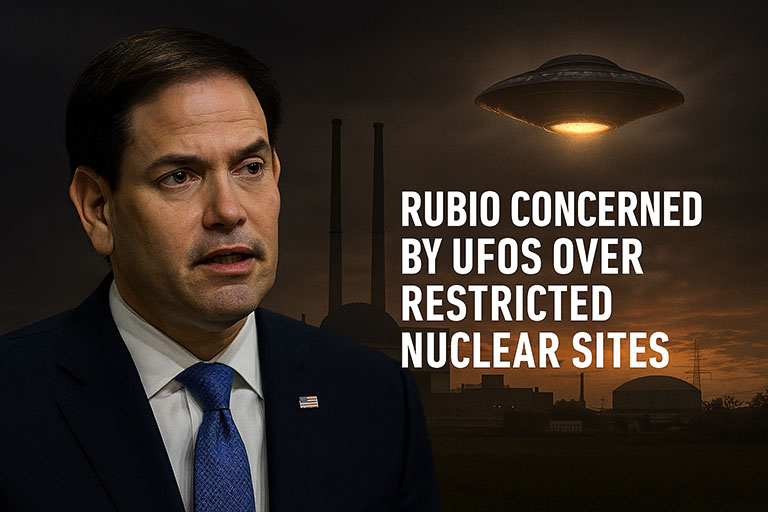In a revelation that’s reigniting global debate, U.S. Secretary of State Marco Rubio has confirmed that unidentified aerial phenomena (UAPs)—formerly known as UFOs—have been observed hovering over restricted nuclear sites. His statements, featured in the trailer for the upcoming documentary The Age of Disclosure that is to premiere on Amazon Prime on November 21st, suggest these incursions pose serious national security risks and may involve technology beyond human capability.
Rubio’s blunt assessment: “Something operating in the airspace over restricted nuclear facilities” was not of U.S. origin. He further claims that even presidents were briefed on a “need to know” basis, underscoring decades of secrecy. What haunts him most, he says, are the human costs—whistleblowers who feared for their lives if they spoke out.
The documentary, set for release on November 21, features dozens of former officials breaking their silence on what it calls an 80-year global cover-up of non-human intelligence. With over 20 million trailer views, public interest is surging.
Historical accounts lend weight to Rubio’s concerns. In 1967, Captain Robert Salas reported a UFO hovering over Malmstrom Air Force Base in Montana, triggering the shutdown of ten nuclear missiles. Salas, silenced under threat of court-martial, now believes it was a warning: “We need to rid ourselves of nuclear weapons.”
The Pentagon’s latest move highlights how seriously these aerial incursions are now being taken. On April 27, 2020, the Department of Defence officially released three declassified videos—known as “flir,” “gimbal,” and “gofast”—after years of unofficial leaks and mounting public pressure. These clips, originally captured by Navy pilots in 2004 and 2015, had circulated online for years, fueling speculation and calls for transparency.
In 2019, the Navy warned of repeated unauthorised aircraft entering military airspace, calling them both a security and safety hazard. Reporting protocols have since been formalised.
Luis Elizondo, former head of the Pentagon’s AATIP program, echoes Rubio’s urgency. “There is very compelling evidence that we may not be alone,” he told CNN. Under FOIA, the Defence Intelligence Agency has released dozens of research titles tied to UAP investigations—hinting at a deeper, classified archive.
The message is clear: secrecy is no longer sustainable. If Rubio’s concerns are valid, the public deserves answers—not silence.

